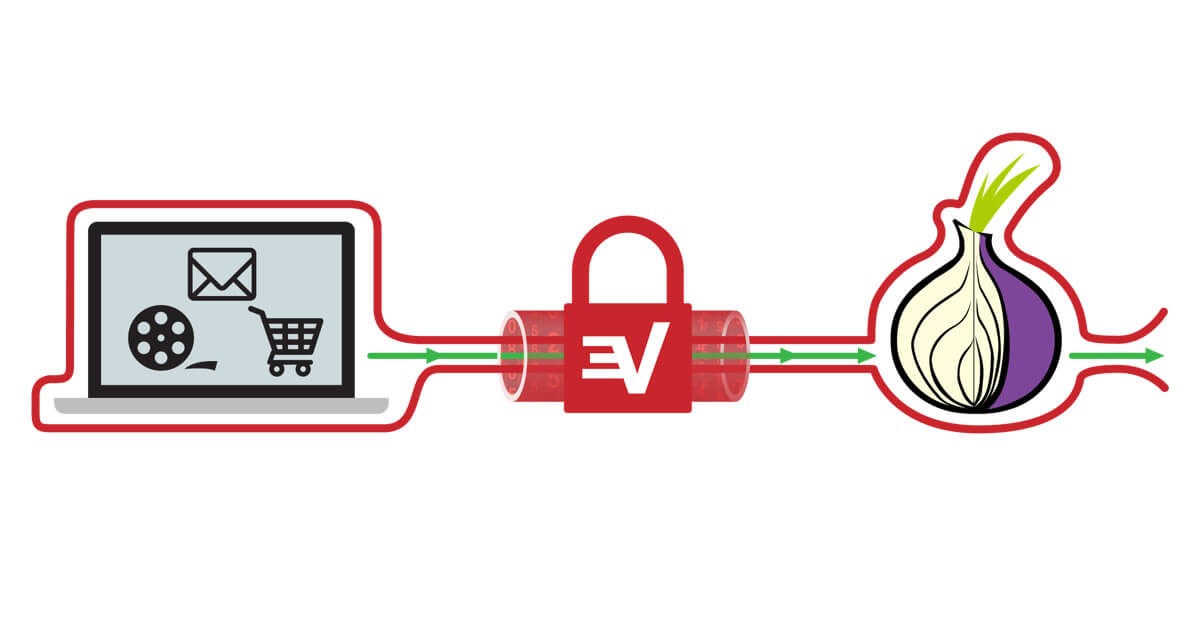
The prime benefit of the VPN Over Tor method is to access certain sites that do not allow connections from known Tor exit nodes. Then, you connect to your VPN provider through the Tor Network (not just turning on your VPN on your desktop). Using this method, you first open the Tor Browser and connect to the Tor Network. The VPN Over Tor method is slightly different. Grab an exclusive 49% discount on your subscription right now. ExpressVPN is always one of the best VPN providers, and you can If you are considering using Tor Over VPN, consider an ExpressVPN subscription.
#Vpn plus tor plus
Tor Over VPN also provides security against malicious entry nodes, which is another plus point.

If your VPN provider logs your data and works with the authorities, you should stick to using Tor without a VPN. Otherwise, you're simply switching trust from your ISP to your VPN provider. If you trust your VPN provider is completely logless and resides in a secure jurisdiction, you can use this method. It does have some caveats regarding your VPN provider. Your ISP will not see that you are connecting to Tor, which could protect your privacy or even enable you to access the service in some countries. If you connect to your VPN provider before connecting to the Tor Network, the entry node will receive the IP address of the VPN service as the origin of the data, instead of your actual IP address. Using a VPN with Tor does have some effect on your connection, however. Although the threat of malicious exit and entry nodes does exist, it shouldn't cause you any issues. The official Tor documentation states that you do not need to use a VPN with Tor to increase your privacy. The question remains: should you use a VPN with Tor Browser? VPNs encrypt your network connection, catching everything else. Tor encrypts your traffic inside the Tor Browser. Now you have read about what Tor and VPNs are, you might begin to see how they fit together. If you don't use a VPN already, check out the reasons why you should start right now!

The VPN differs from Tor in that all of your internet activity receives protection, rather than just activity within the Tor Browser. Whereas, a VPN encrypts your entire internet connection, routing it through the VPN provider servers. In that, many people use Tor Browser for specific tasks and to access specific content, rather than rely on their daily internet browser. Tor Browser and the Tor Network offer extensive protection within that environment, as well as access to the Dark Web (for better or worse). Here is a detailed explanation as to how the Tor Network works and protects your data. So, if you complete a search in your regular browser, you do not have the same multi-layered security and privacy as within the Tor Browser. The Tor Network does not protect any internet activity that takes place outside of the Tor Browser. Any activity inside the Tor Browser uses the Tor Network for protection, with each node your traffic passes through maintaining the network encryption. So, when you use Tor, you connect to the Tor Network, using the Tor Browser (a modified version of Mozilla Firefox). Your internet traffic will appear to come from the IP address of the VPN server, rather than your actual location. Tor is an anonymous communication network that routes internet traffic through a global network of nodes, protecting your data within the Tor Browser and Tor Network.Ī VPN encrypts your network connection, tunneling all of your data through the VPN provider's server.

Specifically, Tor and VPNs are not the same. The first thing to consider is the difference between Tor and a VPN. So, can you use Tor and a VPN at the same time? Understandably, users wonder about combining the privacy and security properties of each tool. Both tools protect your privacy but in different ways. One frequent online privacy question regards the use of the Tor Browser and Tor Network with a VPN (a virtual private network).


 0 kommentar(er)
0 kommentar(er)
